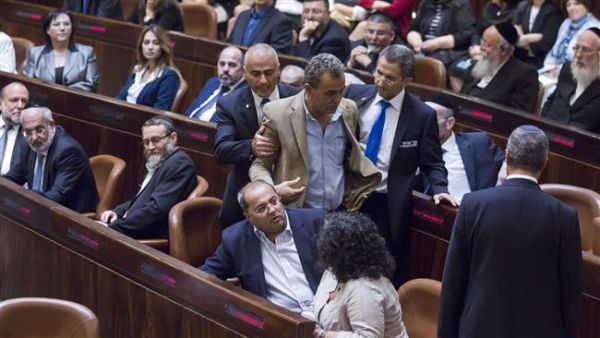The Knesset plenum on Wednesday approved in a preliminary reading a bill that would enshrine Israel’s status as a Jewish nation-state in its Basic Laws.
Forty-eight lawmakers voted in favor of the so-called Jewish state bill by Likud MK Avi Dichter, and 41 Knesset members opposed it.
Israel’s national identity is mentioned in a number of the country’s laws, but the 11 existing Basic Laws deal mostly with state institutions and Israel’s democratic character. The bill effectively discriminates against Israel’s Palestinians and other minority communities.
Dichter, a former chief of the Shin Bet security agency, denied the bill downgrades the status of Arabic in Israel as an official language. He also dismissed claims the law compromises the rights of Israel’s Palestinians, saying it merely anchors Israel’s Jewish status, while protecting the rights of other groups.
According to the proposal, while every individual has the right “to preserve his culture, heritage, language and identity,” the right to realize self-determination “is unique to the Jewish people.” In another controversial clause, Arabic is changed from an official language to one with “special status,” which would ensure its speakers the “right to language-accessible state services.”
With no legislation defining the status of either Arabic or Hebrew, Israeli law relies on a British Mandate ruling defining both as official languages of Mandatory Palestine. “So we said, let’s just go with the current reality,” Dichter said. “Hebrew is the language of the state but Arabic should have a special status above other languages. And that’s exactly what we wrote.”
The proposal also enshrines Israel’s state symbols and anthem, says the Hebrew calendar is the official one, affirms protection of all holy sites, and calls on courts to draw from Jewish law in cases where the existing Israeli legislation falls short.
According to a decision of the Ministerial Committee for Legislation, which on Sunday approved the draft, the bill will be formulated, within two months, as a government proposal, a move that will ease its passage through the Knesset.
By Marissa Newman and Raoul Wootliff
This Article has been edited from its original source.








